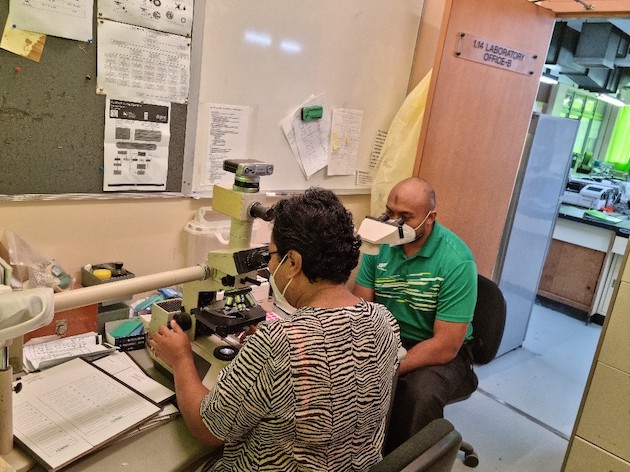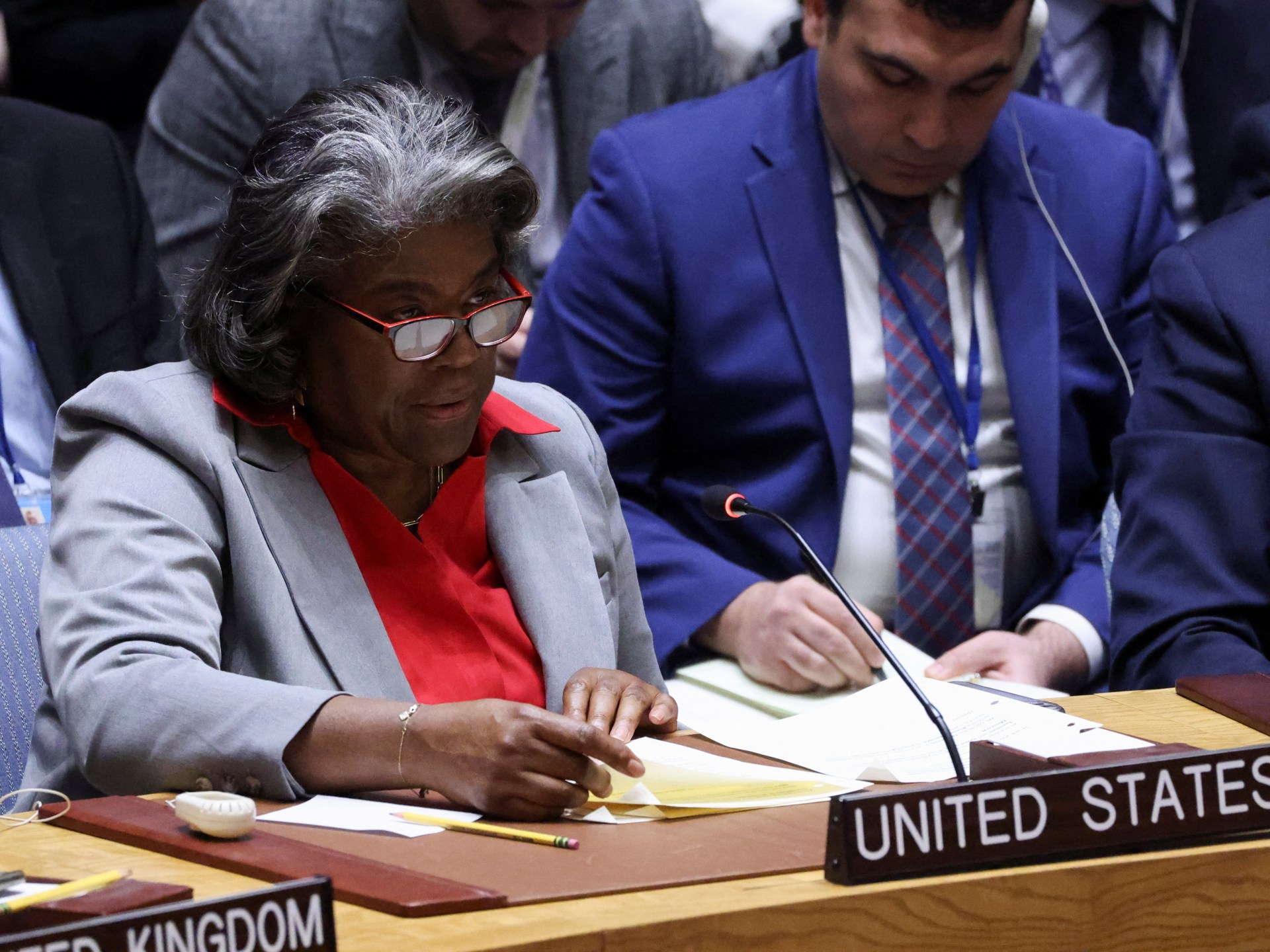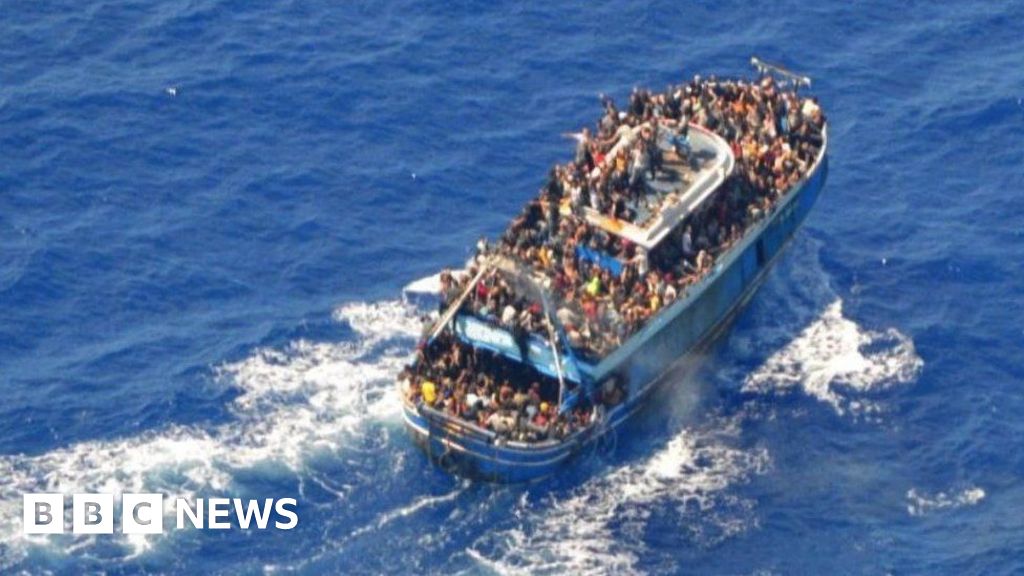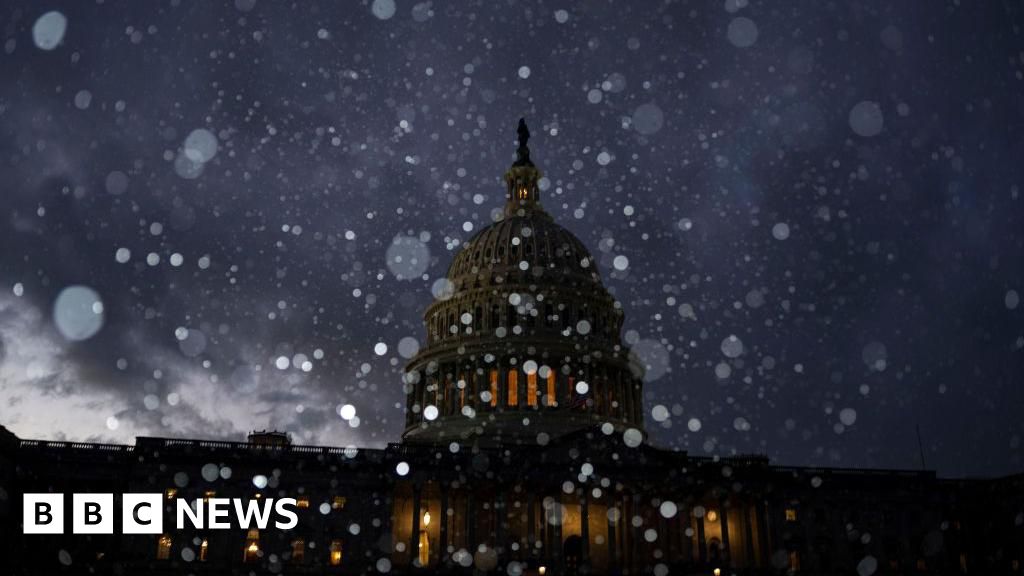Pacific Community-Led Health Missions Arrive with Critical Support to Tonga and Kiribati Grappling with COVID-19 Surges — Global Issues
CANBERRA, Australia, May 03 (IPS) – Before the pandemic emerged in 2020, health services in many Pacific Island countries were under-resourced, under-funded and under-staffed. Now following recent outbreaks of COVID-19, advancing the capacity and development of health and medical services in vulnerable nations, such as Tonga and Kiribati, is increasingly urgent.
In the central Pacific atoll nation of Kiribati, virus cases have skyrocketed from zero to more than 3,000 since the beginning of the year. Meanwhile, the Polynesian kingdom of Tonga was hit early this year by a devastating submarine volcanic eruption and then a spike in COVID-19 cases.
“Ashfall and a tsunami from the volcanic eruption affected an estimated 84 percent of the population covering the whole of Tonga,” Tongan Prime Minister Siaosi Sovaleni’s office announced in late January.
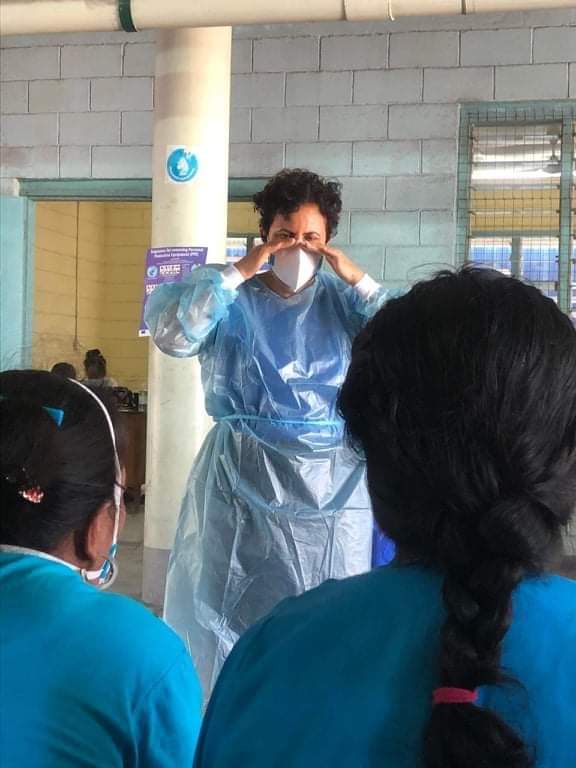
The deployment of health and medical experts to Tonga and Kiribati in February by the regional development organization, Pacific Community, have proven to be crucial support missions.
“Tonga is in a unique and unprecedented scenario. It is contending with a triple event: the volcanic eruption, the tsunami and COVID-19 outbreak. They are all related to one another. We are in Tonga in response to the COVID-19 outbreak, helping to ensure the quality of COVID-19 testing is maintained, aspiring to zero contamination, to support infection prevention and control,” Dr Sunia Soakai, Deputy Director of the Pacific Community’s Public Health Division told IPS from Tonga.
Tonga, an archipelago nation of 104,494 people in the southern Pacific Ocean, managed, for a long time, to stave off the pandemic, recording its first COVID-19 case only in October last year. Then on the 15 January, the Hunga Tonga Hunga Ha’apai underwater volcano, located 65 kilometres northeast of the country’s main island of Tongatapu, erupted violently, propelling massive amounts of volcanic ash into the atmosphere and triggering far-reaching tsunami waves. Many islanders were affected, either by health problems, such as breathing and cardiovascular difficulties, the loss of food sources or forced displacement.
But, as the world reached out to help, disaster recovery efforts were complicated by a spike in the pandemic. As of 20 April, Tonga recorded 9,220 cases of COVID-19 and 11 related deaths.
While Tongans receive free public healthcare, the island nation has limited health infrastructure and human resources. “We are providing support to three hospitals located on Tonga’s outer islands to boost their capacities for COVID-19 testing. That involves assisting them to collect samples and, if needed, transporting them to locations where equipment for testing is available…We’ve also been asked to conduct a thorough review of the country’s health protocols and procedures, such as handling of the deceased, quarantine requirements and procedures related to health care workers returning to work after positive diagnosis of COVID-19,” Dr Soakai described. “And we are working to ensure that other health services continue to be available to non-COVID patients.”
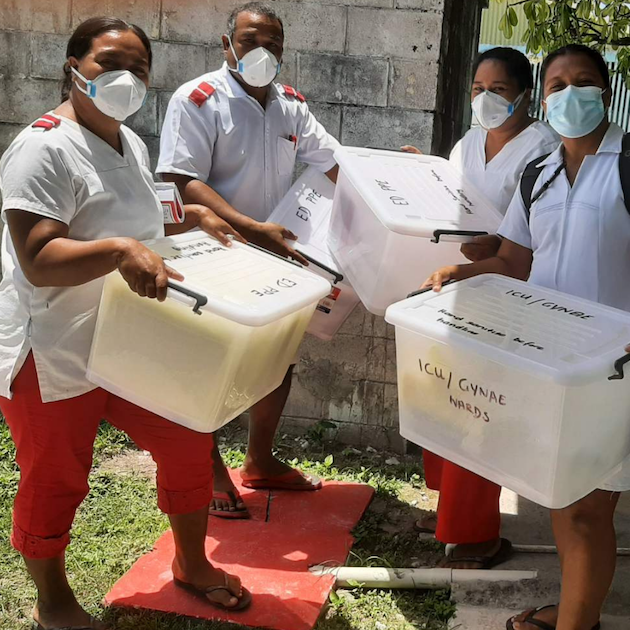
SPC is a member of the World Health Organisation (WHO)-led multi-agency Joint Incident Management Team and provides a wide spectrum of support services, including building the capacities of health systems, improving training and qualifications of healthcare workers across the region and commissioning new medical research.
“The team that was recently deployed to Tonga was very timely. They came when there was a lot of demand in our laboratory to do tests. This was before Rapid Antigen Tests were widely used for testing. We were sending up to 500 swabs per day and this was a challenge to our laboratory,” Dr Ana Akau’ola, Medical Superintendent of the main Vaiola Hospital in Tonga’s capital, Nuku’alofa, told IPS.
Earlier in the year, Elisiva Na’ati, a dietitian from the Pacific Community arrived in the country to aid recovery efforts following the volcanic disaster. “She came when there was a need to develop nutritional proposals for the islanders who had been displaced after the tsunami,” Dr Akau’ola added.
Across the vast Pacific Ocean, containing 22 island nations and territories with a total population of about 11.9 million, the role of the Pacific Community during the pandemic is, for many islanders, the difference between life and death. Many national governments work with constrained budgets and, therefore, funding and resources for health, with specialist and full hospital services often only available in main urban centres.
Only 12 of 21 Pacific Island countries have met the global goal of 4.5 healthcare workers per 1,000 people and national health expenditure per capita in 10 Pacific nations is US$500 or less, compared to the world average of US$1,000, WHO reports. It is not just islanders suffering from the virus, but also those afflicted with other serious illnesses, such as Tuberculosis, diabetes and cardiovascular diseases, who are experiencing over-burdened health clinics and hospitals.
Since the pandemic emerged, the Pacific Community has provided countries with laboratories, medical technology and skills for the testing of COVID-19, assisted vaccination initiatives, upskilled the capabilities of nurses for greater responsibility and strengthened national capabilities to monitor emerging public health threats.
In the atolls of Kiribati, home to about 119,940 people, SPC’s medical and health professionals worked alongside local health staff, patients and international partners, such as UNICEF, WHO and Australia’s Department of Foreign Affairs and Trade, which provided funding.
The country managed to keep COVID-19 from crossing its borders until January when its first case was identified in an incoming traveller. By April 20, 2022, Kiribati had diagnosed 3,076 virus cases in the country with 13 fatalities.
“We went into the country at the peak. We came to assist with preparing the wards, to support the training of PPE use. We set up isolation centres for patients in the community because the hospital beds were all full. We also worked with airport and border control staff, helping them to use practical and effective PPE, such as disposable gowns,” Margaret Leong, the Pacific Community’s Infection Prevention and Control Adviser, who was deployed to Kiribati in February, told IPS.
“Some of the issues and challenges they had were healthcare worker fatigue and psychological stress. Staff were getting sick, so there were insufficient numbers of healthcare workers at the peak. This put stress on the remaining healthcare workers,” Leong continued.
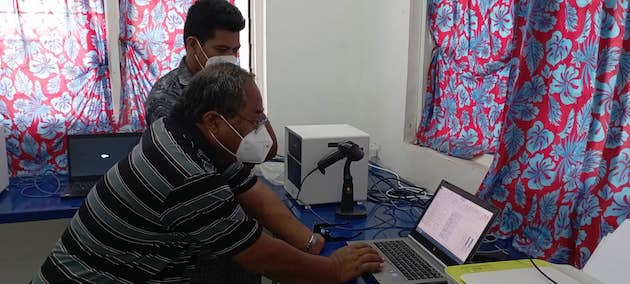
At the same time, Dr Lamour Hansell led the SPC’s Clinical Care Services part of the mission, helping to manage COVID patients in intensive care. “We started up a new hospital for COVID patients, supplying new infrastructure. An old hotel was found and turned into a critical care facility. The Intensive Care Unit was located in the main hotel lobby and it was one of the best I have worked in,” Dr Hansell told IPS.
The work was relentless, round the clock and demanding, but Dr Hansell had only praise for his local colleagues, who, he said, were flexible and adaptable in the face of enormous professional and personal pressures. He witnessed many moments of courage and strength in his co-workers, remembering “one of the clinicians who had to treat and manage her own grandmother who had COVID-19. It was a very humbling thing to see, very humbling and inspiring,” he emphasised.
The number of new virus cases has slowed in both countries since the beginning of April, but internal lockdown restrictions remain in place. While the Pacific Community’s in-country missions responded to the peak of the crisis, the organization is accessible throughout the year to provide virtual, logistical support and mentoring to Pacific Island nations whenever it’s needed.
IPS UN Bureau Report
Follow @IPSNewsUNBureau
Follow IPS News UN Bureau on Instagram
© Inter Press Service (2022) — All Rights ReservedOriginal source: Inter Press Service
Check out our Latest News and Follow us at Facebook
Original Source

